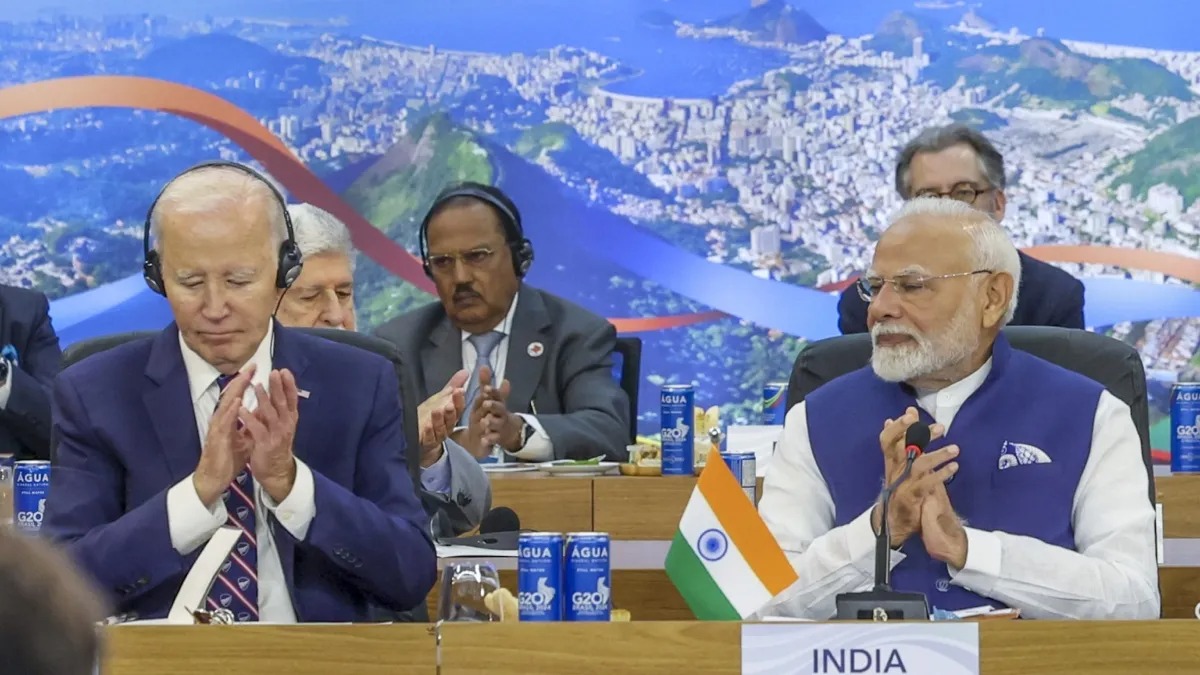

The Pentagon, the headquarters of the US Defense Ministry, has said that the defense relationship between India and the US is progressing brilliantly and strongly. This statement of the Pentagon has come at a time when the reins of power are about to pass from President Joe Biden to the newly elected President Donald Trump. Assistant Defense Secretary for Indo-Pacific Security Affairs Eli Ratner told reporters here, “The US-India defense relationship is strong. This relationship is related to defense industrial base cooperation as well as operational cooperation in the services and is progressing rapidly in great ways.
Responding to a question, Ratner said, “There are ups and downs in India-China relations, but India-US defense relations are constantly moving forward.” The US considers India as its major defense partner. Biden administration officials have described defense relations as one of the key pillars of this partnership.
Pakistan’s ballistic missile program an emerging threat
A top White House official said on Thursday that Pakistan’s development of advanced missile technology will give it the capability to strike beyond South Asia, including the US. He said the Asian country’s actions are an emerging threat to the US. The remarks by the top White House official came a day after the US imposed sanctions on four Pakistani entities, including the state-owned National Development Complex (NDC), a key aerospace and defence agency.
These organizations were banned
These entities are accused of contributing to Pakistan’s ballistic-missile program. The other three entities are Akhtar & Sons Private Limited, Affiliates International and Rockside Enterprise. All three are based in Karachi and the NDC in Islamabad is responsible for the ballistic-missile program. It has worked to acquire items to advance Pakistan’s long-range ballistic missile program.
The Biden administration imposed three phases of sanctions
“The Biden administration has taken a number of steps to combat further development of long-range missile systems. Last year, we imposed three rounds of sanctions on non-Pakistani entities that provide support to Pakistan’s ballistic-missile program. Yesterday, we issued direct sanctions against Pakistan’s state-owned National Development Complex, which the United States assesses is involved in the development and production of Pakistan’s long-range ballistic missiles, marking the first time we have sanctioned a Pakistani state-owned enterprise connected to missile development,” Principal Deputy National Security Adviser Jon Finer told a think-tank.
Pressure will remain on Pakistan
“Simply put, we will maintain pressure on Pakistan with respect to its long-range missile program, even as we continue to seek diplomatic solutions to address our concerns,” Finer said in his remarks at the Carnegie Endowment for International Peace, a top US think-tank. In his recent remarks, Finer said Pakistan has steadily developed missile technology, from long-range ballistic missile systems to equipment that would enable the testing of much larger rocket motors. If these trends continue, Pakistan will have the capability to strike targets beyond South Asia, including the United States, raising real questions about Pakistan’s intentions.
Only three countries can launch missile attacks on America
Finer said the list of countries with nuclear weapons and missile capability to reach the US directly is very short (Russia, North Korea and China) and they are adversaries to the United States. “We have been long-standing partners with Pakistan on development, counter-terrorism and other security issues, including quite sensitive issues. We have provided assistance to Islamabad during difficult times and we seek a cooperative relationship in these areas of shared interests. This makes us even more suspicious as to why Pakistan would be motivated to develop a capability that could be used against us. Unfortunately, we believe Pakistan has failed to take these concerns and, frankly, the concerns of others in the international community seriously and has continued to pursue these capabilities,” Finer said.
Pakistan can become a big threat
“Just looking at the map and the boundaries, we believe it is basically focused on us. I think that is the conclusion that we have based on the information that we have received and that is why it is a matter of such great concern. Because the United States cannot sit quietly and watch the development of this capability, which we think could ultimately pose a threat in the future,” Finer said in response to a question.
Read More: How Climate Change and Policy Blunders Created a Massive Daal Shortage in Pakistan

 Share
Share



